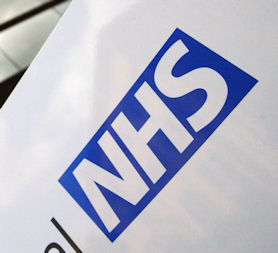Vote 2010: policy guide - health
Updated on 07 April 2010
As the debate on NHS funding levels unfolds, Britain’s ageing population has pushed the issue of a national care service to the forefront of the election campaign, writes Victoria Macdonald.

There are few more emotive issues in an election campaign than the National Health Service and most politicians agree they tamper with it at their peril. Remember Jennifer's ear in 1992, and Sharon Storer accosting Tony Blair over her husband's cancer treatment in 2001?
The debate over social care was got out of the way before the campaign proper began and so far health has stayed out of the national headlines.
But politicians ignore it at its peril because for the first time since Labour came to power with the slogan "24 hours to save the NHS", the battleground will be at local level over what is going to be cut in the face of a massive squeeze on spending.
Labour says the NHS budget will rise in line with inflation until 2013, and that frontline services will be protected; the Tories say they are committed to protecting health spending in real terms; and the Lib Dems will find savings by trimming away unnecessary NHS layers.
For the first time an Ipsos/Mori poll shows that Labour is only 9 points ahead of the Conservatives on health. In 1997 they had a 44 point lead.
L A B O U R
Labour's manifesto largely builds on the work already under way. The 18 weeks to treatment target and access to cancer specialists within two weeks would be enshrined in law, and the party has also now promised that the results of cancer tests would be available within one week.
Routine health checks for those aged beween 40 and 74 would become available and everyone would have the right to choose a GP regardless of their postcode.
Labour continues its rowback on the use of the private sector by promising that the NHS will be given the chance to improve its service before alternative providers are considered, although all NHS patients would have their treatment funded in the private sector if need be.
On social care, Labour promises that from 2011 those with the 'greatest care' needs will receive free personal care at home and from 2015 a National Care Service would be established for 'eligible' adults and a commission would be set up to decide how to finance this.
There would be more matrons to tackle hospital-acquired infections, all hospitals would be allowed to become foundation trusts and the controversial NHS IT programme would be scaled back.
C O N S E R V A T I V E
The Tories have said they will protect health spending, but with changes in the way the NHS is organised and managed. They have a "reform plan" which they say is based on cutting administration costs and removing expensive layers of bureaucracy.
Targets would be replaced by "outcomes", with a focus on improving survival rates for the biggest killers – cancer, strokes and heart disease.
The Conservatives have promised more patient choice, with the right to opt for any healthcare provider that meets NHS standards. They will make much of plans to make payment for services and procedures follow the patient (which some would say already happens), in order to incentivise new, independent or voluntary healthcare providers.
They also want to give family doctors the power to hold budgets and to commission care. Back to the days of fundholding? Mothers would have more choice over where to give birth, and a new dentist's contract would ensure a million more people gain access to NHS dental care.
An independent NHS board would be created to deal with political interference in the health service and the Department of Health itself would become the Department of Public Health with a new funding system ensuring more money goes towards the poorest areas with the worst health outcomes.
A cancer drug fund has also been promised to allow doctors to prescribe drugs they believe would help the patients but which were not authorised by the National Institute of Health and Clinical Excellence. There has been some dispute over how the Conservatives would fund this.
And on social care, they Conservatives are proposing a voluntary one-off insurance premium of around £8,000 to cover the cost of receiving care in one's own home.
L I B E R A L D E M O C R A T
The Liberal Democrats also pledge to attack bureaucracy by cutting in half the Department of Health and abolishing a number of quangos. Pay for NHS managers would be capped and strategic health authorities scrapped.
In addition, primary care trusts would be replaced by local health boards, locally elected or appointed management teams that would, it's proposed, give patients more control over their health services - possibly even being able to raise taxes.
Targets would be scrapped in favour of "entitlements" – so if the NHS failed to treat you on time, it would have to pay the private sector to do it. Waiting times would be adjusted according to the severity of the illness.
The Lib Dems would also scrap the national programme for IT in favour of local schemes, and encouraging email dialogue between doctor and patient.
Like the other parties, they promise that patients would be able to register with a GP of their choice.
On public health, they have pledge to ban below-cost sale of alcohol and to review the alcohol taxation system.
Their pledges for social care include an independent commission on long-term care (as Labour did when they came to power).
Additional reporting by Keme Nzerem





